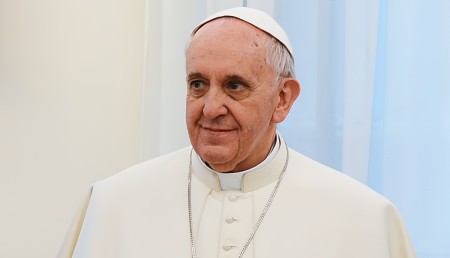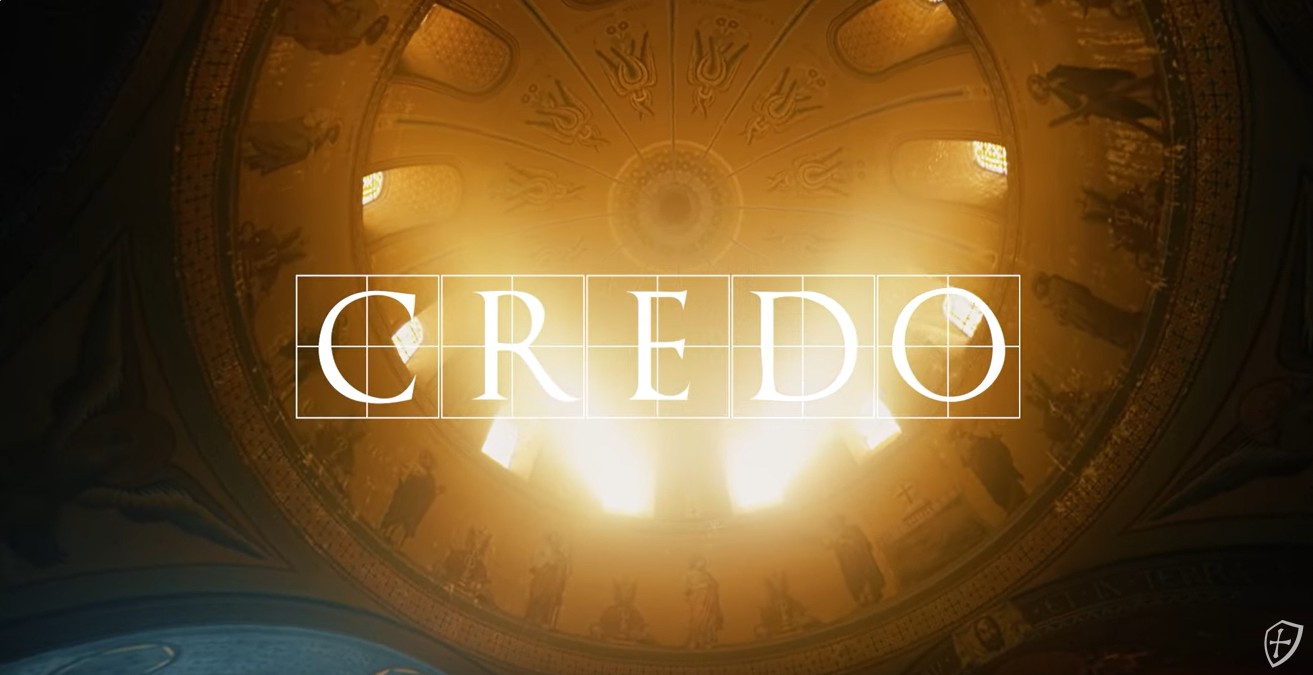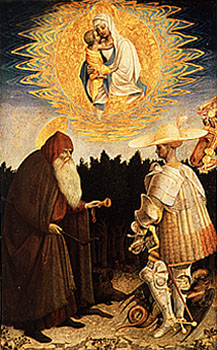 Dear readers, Catholic Online was de-platformed by Shopify for our pro-life beliefs. They shut down our Catholic Online, Catholic Online School, Prayer Candles, and Catholic Online Learning Resources—essential faith tools serving over 1.4 million students and millions of families worldwide. Our founders, now in their 70's, just gave their entire life savings to protect this mission. But fewer than 2% of readers donate. If everyone gave just $5, the cost of a coffee, we could rebuild stronger and keep Catholic education free for all. Stand with us in faith. Thank you. Help Now >
Dear readers, Catholic Online was de-platformed by Shopify for our pro-life beliefs. They shut down our Catholic Online, Catholic Online School, Prayer Candles, and Catholic Online Learning Resources—essential faith tools serving over 1.4 million students and millions of families worldwide. Our founders, now in their 70's, just gave their entire life savings to protect this mission. But fewer than 2% of readers donate. If everyone gave just $5, the cost of a coffee, we could rebuild stronger and keep Catholic education free for all. Stand with us in faith. Thank you. Help Now >
Andrew M. Greenwell: Jesus is the Heart and the Marvel of the Gospel
FREE Catholic Classes
If pursued, and pursued rightly (that is, without moral or intellectual prejudice), metaphysics leads us to a threshold, a threshold we might call the limina fidei, the threshold of faith. Reason takes us to a place where we know God--that He is. But it will not yield much, if it all, about what He is. So when reason guides us to the threshold, what are we to do? Dare we venture beyond?
Highlights
Catholic Online (https://www.catholic.org)
1/27/2015 (9 years ago)
Published in Living Faith
Keywords: Jesus, reason, faith, restless heart, metaphysics, Augustine, Ottokar Prohaszka, Andrew Greenwell
CORPUS CHRISTI, TX (Catholic Online) - The great Hungarian bishop Ottokar Prohaszka wrote in his Meditations on the Gospels: "This world is only something, not everything; and our soul reaches out beyond the something." The bishop reminds us that there is an additional something beyond the "something that is this world" which is part of reality, of what is.
Our souls seem to have an inbuilt desire, an inbuilt sense that this "world is only something; not everything." This disposition is the basis for man's natural religious sense.
If this is sentiment is true, then there must be a reality beyond the "something that is this world." Or, polishing that thought a bit: taking "everything that is" as the minuend, and subtracting the "something that is this world" as the subtrahend, we get a difference: "Something that is not this world."
"Everything that is" - "something that is this world" = "Something that is not this world."
This "Something that is not this world" is, in philosophical parlance, the Ground of Being, the First Cause. Some would call it "the Other." Omnes dicitus Deus. All call this God.
It is the object of classical metaphysics, of the first philosophy.
That this "Something that is not this world" exists is something that is accessible to reason. Beyond that, however, reason fails. In other words, with regard to this "Something that is not this world," we know that it is, but we do not know what it is.
Naturally, our soul will want to reach out beyond the "something that is this world" . . . if we do not squelch it. Anima naturaliter philosophica. The human soul is naturally philosophical, metaphysical.
In the words of the phenomenologists, we are naturally not only open to "something that is this world"--offen für die Welt--we are also open to that "Something that is not this world," we are open to God--offen für Gott.
In the words of the medieval theologian, man is capax Dei, has a "capacity for God." Man has a capacity for the "Something that is not this world." In the memorable words of St. Augustine: Fecisti nos ad te, Domine, et inquietum est cor nostrum donec requiescat in te! "You have made us for yourself, Lord, and our heart is restless until it finds its rest in you!"
Unfortunately, the conventions--one might say mental shackles--of our modern secular and scientifically-based society hinder, suppress, or ridicule man's natural capacity for this "Something that is not this world."
Some of these modern shackles are moral. There is a moral cost to assenting to the truth the "something that is this world" is not Everything. This is so because it comes with a moral corollary, which can be framed both in terms of good and in terms of law.
With respect to good, if the good we know is only something, not everything, then it means that there is a Good beyond the good, a Good with which we have to be concerned.
With respect to law, if the law we know is only something, not everything, then it follows there is a Law beyond the law, and this Law may likely have something to say about our law.
But there are also shackles that are intellectual in nature. Many--philosophers, poets, romanticists, scientists, religious thinkers--have identified and rued this problem and called it various names.
We suffer from a "single vision," said the poet William Blake, and it has put our farsightedness to bed. We suffer from "Newton's sleep."
The sociologist Max Weber said that modernity has put our reason into a Stahlhartes Gehäuse or "iron cage" where we restrict ourselves to the reality that is the "something that is this world," and so are punished from contemplating the "Something that is not this world." We have disenchanted the world.
Charles Taylor, the historian of modern secularism, says that we have adopted an "immanent frame" of reference--we have selected a poor vantage point--that allows us only to see the "something that is this world," and therefore hides from our view, the "Something that is not this world," and necessarily hides from us the truth of Everything.
In his book, A Fractured Relationship, Fr. Thomas Norris speaks about a "strong reason" and a "weak reason," and he notes that moderns rely only on "weak reason." Fr. Norris is drawing from the medieval tradition which recognized that man's reason is naturally made to study not only the physike-the "something that is this world,"" but also the meta-physike, the "Something that is not this world."
The first, narrow kind of reason that focused on the "something that is this world" was known as ratio. The broader kind of reason that focused on the "Something that is not this world" was known as intellectus.
As the Catholic philosopher Josef Pieper put it: "Ratio is the power of discursive, logical thought, of searching and of examination, of abstraction, of definition and drawing conclusions. Intellectus, on the other hand, is the name for the understanding insofar as it is the capacity of simplex intuitus, of that simple vision to which truth offers itself like a landscape to the eye."
Metaphysics is that branch of human reason or philosophy that reaches out beyond the "something that is this world." It seeks the "Something that is not this world," by extrapolating from the "something that is this world," or--in the words of the Jesuit Erich Przywara--yearning to see what is "at once 'behind,' 'beneath,' 'above,' and at the same time 'interior to'" the "something that is this world."
If pursued, and pursued rightly (that is, without moral or intellectual prejudice), metaphysics leads us to a threshold, a threshold we might call the limina fidei, the threshold of faith. Reason takes us to a place where we know God--that He is. But it will not yield much, if it all, about what He is.
So when reason guides us to the threshold, what are we to do? Dare we venture beyond?
There is in us a passive natural capacity which is unused--a sort of spiritual appendix, a vestigial spiritual organ that hearkens to our existence prior to the Fall and which theologians call obediential potency.
As a result, there is in us, theologians say, a sort of weak "wish," an ill-defined yearning, a hunch, a velleity, that wants to go beyond this "something that is this world" to that "Something that is not this world," but does not know how, and, in fact--of its own natural powers--cannot.
At this limina fidei, this threshold to which reason leads us, we stutter; both our reason and our words fail us. A, a, a, Domine Deus, ecce nescio loqui, "Ah, ah, ah, Lord God: behold, I cannot speak," as the prophet Jeremiah put it (Jer. 1:6).
In his sermon for the Fourth Sunday after Epiphany, St. Bonaventure says that when we get to this threshold we must no longer rely upon philosophy, as important as it is in its realm of competence. At the limina fidei we must view it as "practically worthless," quasi nullius valoris.
Like Virgil guiding Dante through Purgatory, philosophy has done its job in guiding us to the threshold and disappears.
Ma Virgilio n'avea lasciati scemi
di sé, Virgilio dolcissimo patre,
Virgilio a cui per mia salute die'mi.
But Virgil-he had left us there bereft
Of himself-Virgil, sweetest father-Virgil
To whom I gave myself for my salvation!
(Purgatorio, XXX.49-51)
Abandoned by philosophy, how then to we get past the threshold?
Ottokar Prohaszka gives us the answer. We must take that additional step beyond philosophy, beyond reason, even intellectus: "We pray!"
"We pray!" "I believe, help Thou my unbelief!"
It is prayer that takes us from the "God of the philosophers and scholars," as Pascal put it, to the "God of Abraham, God of Isaac, God of Jacob." As the book of Hebrews puts it, "he that comes to God must believe that he is." (Heb. 11:6)
And in response to our prayer, the most marvelous thing happens. The "Something that is not this world"--the God of Abraham, Isaac, and Jacob--answers. This divine response by the "Something that is not this world" is called supernatural grace, our greatest treasure and God's greatest gift. And in fact, we will recognize that the "Something that is not this world"--God--has been with us all the time leading us to where we are.
But there is even better news. If we follow the promptings of the grace of the "Something that is not this world"--the God of Abraham, Isaac, and Jacob--then we will discover something more marvelous yet.
That discovery is that the "Something that is not this world" became part of the "something that is this world." In the language of the Gospel of John, we discover that the Word who was God "was made flesh, and dwelt among us," In the language of the Creed, the "God from God, Light from Light, true God from True God" "became incarnate of the Holy Spirit of the Virgin Mary, and became man."
Bestriding the "Something that is not this world" and the "something that is this world" like a colossus is a Person, a Person who joins both worlds in Himself, without confusing them. Though "we petty men walk under his huge legs and peep about," we are given a share in it. He is the one and only bridge--pontifex--from the "something that is this world" to the "Something that is not this world."
Of course, this colossus has a name. His name is Jesus, and about a month ago we celebrated his birth as an infant. And if you want to know about this "Something that is not this world" in addition to that "something that is this world," that is to say, if you want to know the truth about Everything, you had better include Him.
No one comes to the "Something that is not this world" but through Jesus. And we come to the "Something that is not this world" through that part of Jesus that is "something that is this world," that is, His sacred humanity.
Since the incarnation of the Word, the "Something that is not this world" has a human body, a human face, a human heart. The "Something that is not this world" came to speak to us in human words.
This remarkable reality that is Jesus is both the heart and the marvel of the Gospel.
-----
Andrew M. Greenwell is an attorney licensed to practice law in Texas, practicing in Corpus Christi, Texas. He is married with three children. He maintains a blog entirely devoted to the natural law called Lex Christianorum. You can contact Andrew at agreenwell@harris-greenwell.com.
---
'Help Give every Student and Teacher FREE resources for a world-class Moral Catholic Education'
Copyright 2021 - Distributed by Catholic Online
Join the Movement
When you sign up below, you don't just join an email list - you're joining an entire movement for Free world class Catholic education.

-

-
Mysteries of the Rosary
-
St. Faustina Kowalska
-
Litany of the Blessed Virgin Mary
-
Saint of the Day for Wednesday, Oct 4th, 2023
-
Popular Saints
-
St. Francis of Assisi
-
Bible
-
Female / Women Saints
-
7 Morning Prayers you need to get your day started with God
-
Litany of the Blessed Virgin Mary
Pope Francis Suffers Fall: A Look at Papal Health and Succession
-

The Erosion of Civility in Congressional Hearings: A Call for Professional Decorum
-

Bishop Strickland and Others Defend Apostolic Tradition in New Documentary on the Church's Enduring ...
-
At Least 25 Dead as Wildfires Continue to Rage Across Los Angeles, Arson Investigations Underway
-
Australian Woman Charged with Torture After Exploiting Child for Donations
Daily Catholic
 Daily Readings for Friday, January 17, 2025
Daily Readings for Friday, January 17, 2025 St. Anthony the Abbot: Saint of the Day for Friday, January 17, 2025
St. Anthony the Abbot: Saint of the Day for Friday, January 17, 2025 Prayer for a Blessing on the New Year: Prayer of the Day for Tuesday, December 31, 2024
Prayer for a Blessing on the New Year: Prayer of the Day for Tuesday, December 31, 2024- Daily Readings for Thursday, January 16, 2025
- St. Fursey: Saint of the Day for Thursday, January 16, 2025
- St. Theresa of the Child Jesus: Prayer of the Day for Monday, December 30, 2024
![]()
Copyright 2024 Catholic Online. All materials contained on this site, whether written, audible or visual are the exclusive property of Catholic Online and are protected under U.S. and International copyright laws, © Copyright 2024 Catholic Online. Any unauthorized use, without prior written consent of Catholic Online is strictly forbidden and prohibited.
Catholic Online is a Project of Your Catholic Voice Foundation, a Not-for-Profit Corporation. Your Catholic Voice Foundation has been granted a recognition of tax exemption under Section 501(c)(3) of the Internal Revenue Code. Federal Tax Identification Number: 81-0596847. Your gift is tax-deductible as allowed by law.










 Daily Readings for Friday, January 17, 2025
Daily Readings for Friday, January 17, 2025 St. Anthony the Abbot: Saint of the Day for Friday, January 17, 2025
St. Anthony the Abbot: Saint of the Day for Friday, January 17, 2025 Prayer for a Blessing on the New Year: Prayer of the Day for Tuesday, December 31, 2024
Prayer for a Blessing on the New Year: Prayer of the Day for Tuesday, December 31, 2024

